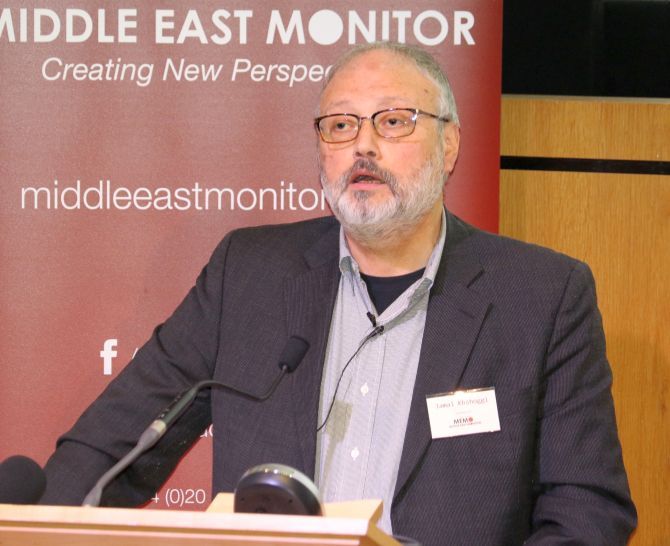An independent investigation led by a United Nations special rapporteur claimed that there is "credible evidence" linking Saudi Crown Prince Mohammed bin Salman to the murder of journalist Jamal Khashoggi.

The allegation regarding Prince Mohammed's possible direct role in Kashoggi's execution last October was detailed in a new report by the UN special rapporteur on extrajudicial, summary or arbitrary executions, Agnes Callamard.
The much-anticipated report, released on Wednesday after concluding the first independent investigation into Khashoggi's death, has revealed that the late Saudi Arabian journalist was the victim of a "deliberate, premeditated execution," CNN reported.
Khashoggi, a prominent writer, and former Washington Post columnist, was murdered at the Saudi consulate in Istanbul on October 2, 2018.
While Riyadh initially denied any knowledge of the incident, Saudi officials later claimed that a group of rogue operators, many of whom belong to Saudi Crown Prince Mohammed bin Salman's inner circle, were responsible for the journalist's death.
The Saudi attorney general later confirmed that Khashoggi was killed in a premeditated murder.
Callamard said her inquiry had "determined that there is credible evidence, warranting further investigation of high-level Saudi Officials' individual liability, including the Crown Prince's".
The UN expert noted that international sanctions issued so far in response to Khashoggi's killing "simply fail to address the central questions of chain of command and of senior leadership's responsibilities for and associated with the execution".
Given "the credible evidence into the responsibilities of the Crown Prince for his murder, such sanctions ought also to include the Crown Prince and his personal assets abroad, until and unless evidence is provided and corroborated that he carries no responsibilities for this execution," she added.
"The only conclusion made is that there is credible evidence meriting further investigation, by a proper authority, as to whether the threshold of criminal responsibility has been met," she said.
Callamard added that Khashoggi was "fully aware of the powers held by the Crown Prince" and had expressed fears about what would happen to him if he returned to the Kingdom.
Riyadh has maintained that neither bin Salman nor King Salman knew of the operation to target Khashoggi.
US officials, meanwhile, have said such a mission -- including 15 men sent from Riyadh -- could not have been carried out without the authorisation of bin Salman.
According to the special report, which cites evidence from Turkish and other intelligence agencies, after entering the consulate, Khashoggi was injected with a sedative and then his head put inside a plastic bag and suffocated.
It also quotes an audio recording from inside the consulate, in which Khashoggi is heard being told he will be taken to Saudi Arabia.
It has previously been reported that after Khashoggi was killed, his body was dismembered and removed from the premises of the consulate in separate bags that have not been found yet.
The special rapporteur further found credible evidence pointing to the crime scenes having been "thoroughly, even forensically, cleaned" -- indicating that the Saudi investigation was "not conducted in good faith and that it may amount to obstructing justice."
Last year, US President Donald Trump had made it clear that Washington would not change relations with Riyadh against the rising condemnation of Saudi Arabia and vowed support for the Crown Prince.
Trump had instead emphasised the importance of the United States' strategic relationship with Saudi Arabia in the Middle-East.
With inputs from ANI











 © 2025
© 2025